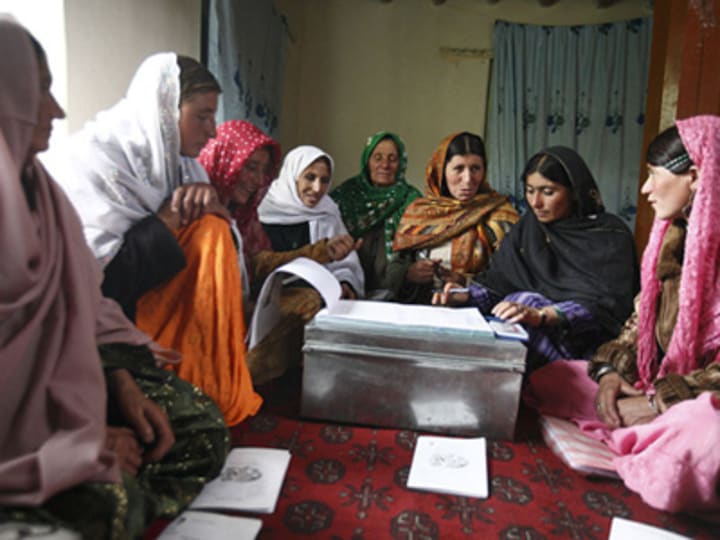
The fall of the Taliban in Afghanistan has provided increased opportunities for women to receive education or participate in activities in public life.
Women’s and rights organizations have thus grown significantly since 2001, a notable achievement in a deeply conservative society where just twelve years ago women were not allowed to attend school.
But many in the aid community fear these gains may be under threat with the impending full withdrawal of NATO troops next year.
Such a scenario is already being witnessed in the provinces of Laghman and Nangarhar, according to a new joint report by CordAid, the Afghan Women’s Network and the Afghanistan Public Policy Research Organization that looks into the impact on women of the withdrawal of foreign forces in 2014.
The report says girls’ school attendance and the number of working women, for instance, have seen significant drops in the past six months due to increased security concerns. These developments have pushed some women working as teachers or health personnel to relocate to more stable central areas.
While understandable, the report argues these actions are likely to affect women and girls’ access to education and health services in the rural areas, and therefore add to further regression of women’s rights and opportunities in Afghanistan.
The case is also not very good for women’s and rights groups, whose security is perceived to be at high risk in the event of significant deterioration in national security.
“Women’s organizations are likely to be the most vulnerable … because the issue of women’s rights has been a political point of departure in disagreements between the international community and the more conservative elements within and outside the government of Afghanistan,” Saeed Parto, APPRO director of research, told Devex.
The case of donor funding
Confronted with this reality on the ground, the authors of the report are calling on donors to “intensify” development programs in those areas where NATO forces no longer exist to prevent the social, economic and political situation there from deteriorating further.
They also recommend donors to support “skill transfer initiatives” that would help national organizations to secure funding directly from donors, rather than relying on middlemen such as iNGOs that may see the need to leave or cease operations with projections of less aid money in the coming years (and only a focus on issues such as women’s rights, education and public health), although at the moment majority of international and national organizations insist they want to stay in Afghanistan.
Parto however cautions donors against just providing financial support to their “favorite” women’s rights organizations.
“These efforts must go beyond donor organizations … drowning them in funds without providing them with political survival skills, namely in how to become pragmatic advocates rather than flag waving rights activists,” he argued.
The latter has been a popular approach in Afghanistan, but it has had a “tendency to strengthen the resolve by many of the more conservative elements to resist structural reform better suited for the protection of women’s rights,” explained Parto.
Donors, he concluded, should also explore ways on encouraging alliances between women’s groups and CSOs on this approach, as well as on helping women boost their economic foundations, which would help advocacy on women’s rights become more successful.
Read more development aid news online, and subscribe to The Development Newswire to receive top international development headlines from the world’s leading donors, news sources and opinion leaders — emailed to you FREE every business day.


